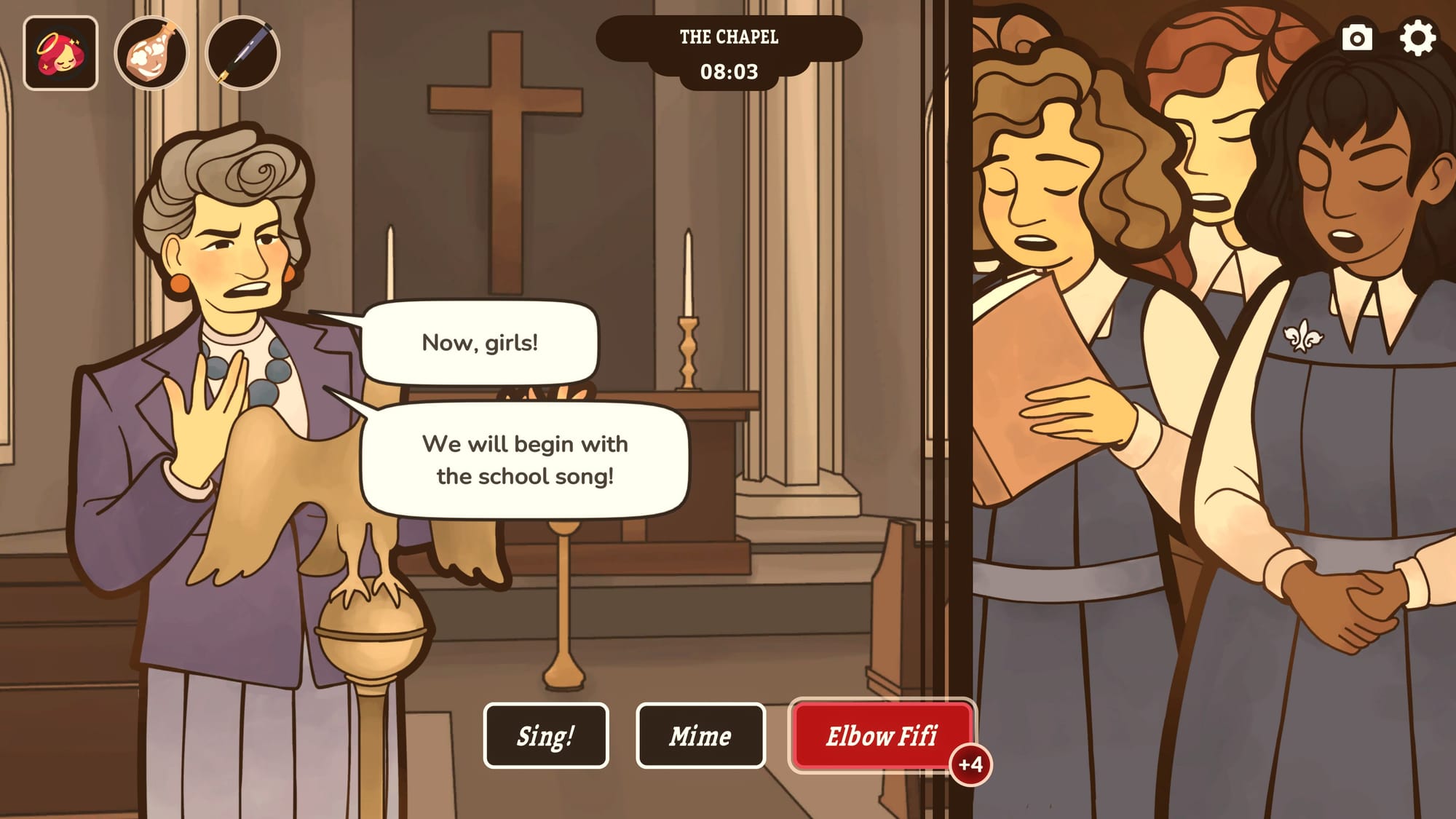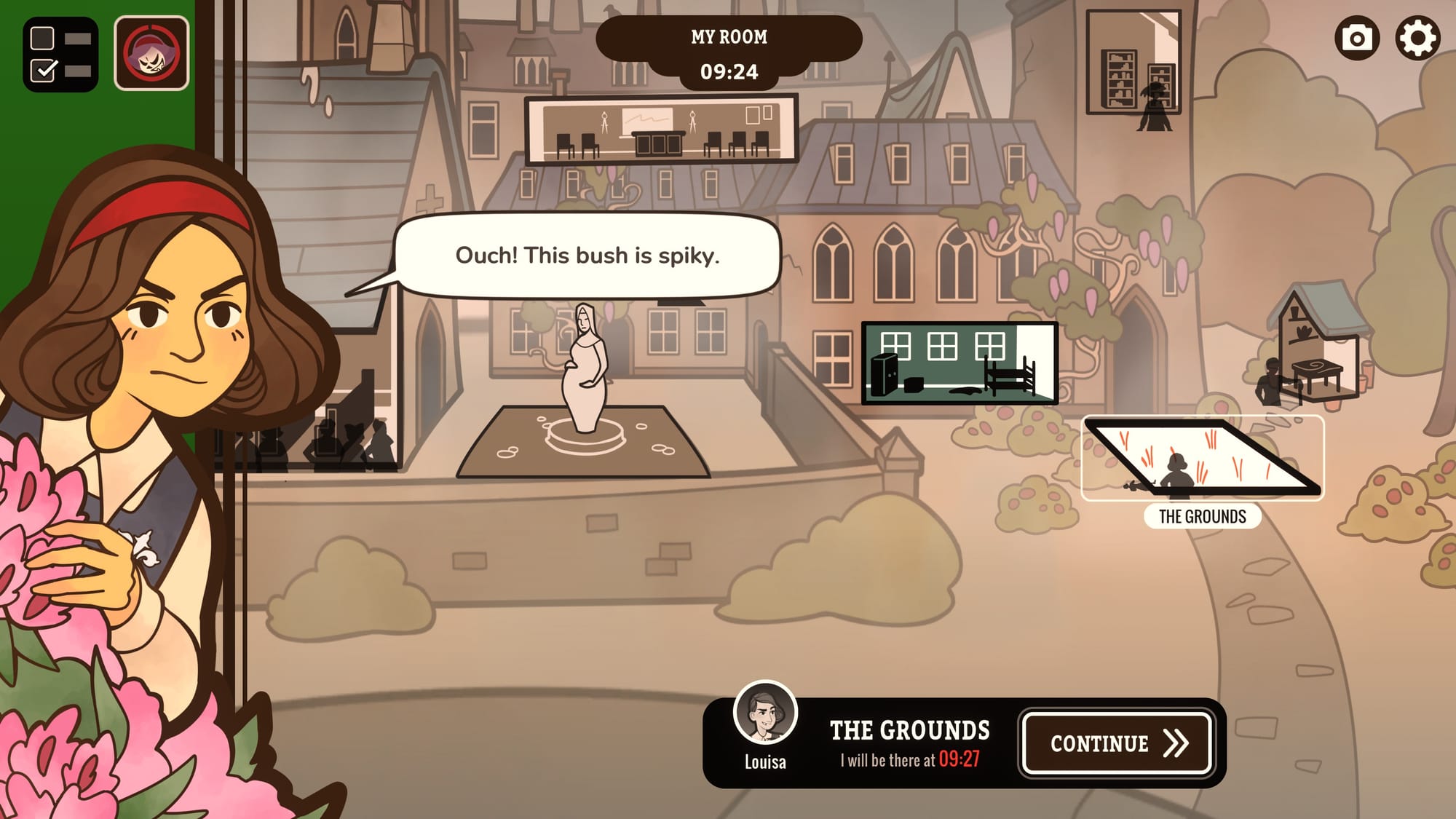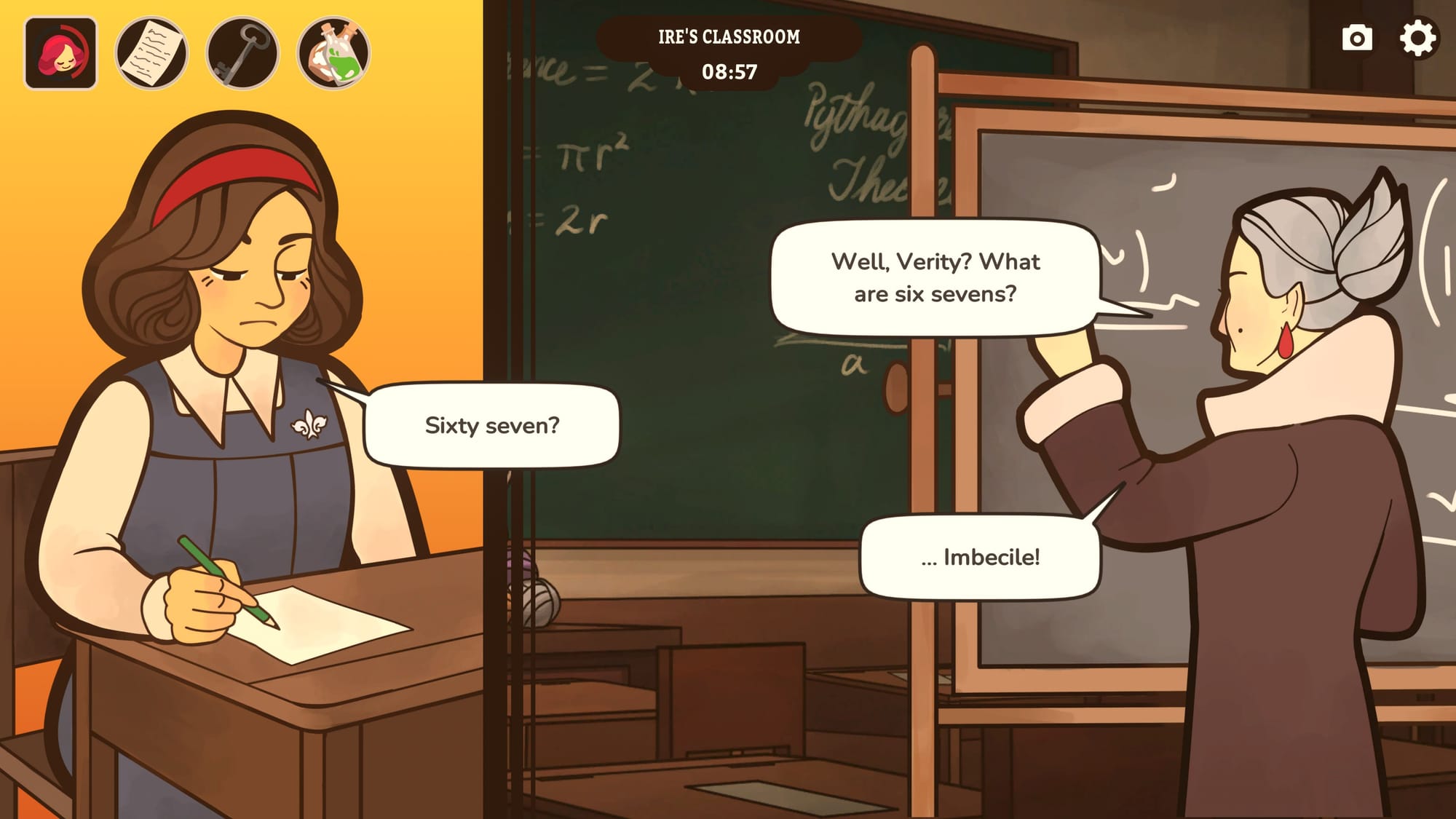WordPlayer: Expelled! Reinvents The Morality Meter
Embrace your naughtiness

I remember well the first time I played a game with a robust morality meter. It was Star Wars: Knights of the Old Republic, and I found the idea of going full evil - or "Dark Side", in Star Wars parlance - enticing. Setting the game in the distant past and focusing so much on the mythical corrupting power of the "Force" allowed me to play as a bad guy without needing to think too hard about the fascist regime of the empire, and after a lifetime of hero's journeys and saviour narratives I was excited to make actively "bad" choices, to see how it felt to do awful things when given the option and have the game's story adapt to those actions without judgement.
Knights of the Old Republic still holds up in many ways, but it's a product of a time in that the obvious allegorical lines between the "Empire" and real-world fascist regimes didn't feel quite so potent in 2003 (and it's worth noting that I was 16 years old when I played it). It was a time when someone could describe Nazis as "overused" as enemies, because fictional media was the main place we all saw Nazis depicted (which is very much no longer the case).
The Dark Side path in Knights of the Old Republic is wild and often thrilling, but I don't think it's the path I'd choose if I played the game again now. As the credits rolled, I felt uneasy at the absolute chaos I'd caused. I'd gotten the ending that made the most sense for my actions, and it reinforced for me that my personal values were very different from the character's.
Between then and now, I've generally avoided the "bad" path in games with morality systems, and have often found the good/evil binary in games to be undercooked. It can be very fun to do the "wrong" thing in a game, to sow seeds of chaos and watch as the world unravels around you. But usually, when the game gives you the option to make bad, mean, or unkind decisions, I find myself unable to make them - not just because the character's actions are wrong, but because I've found that very few of these games make "evil" as interesting as it was in Knights of the Old Republic.

Which brings me to Expelled!, the latest choice-based narrative game from the geniuses at Inkle, and a follow-up to their wonderful 2021 game Overboard!. The game casts players as Verity Amersham, a teenage girl and scholarship student at a 1920s boarding school for "promising" girls. At the game's opening she's framed over an incident where one of the other girls smashes a stained glass window and jumps from the second storey of the library, and it's up to the player to explore the school and find the optimum way to avoid expulsion over the crime you're swiftly accused of. As you venture around the school making decisions about how to proceed, the number on your "naughtiness" meter - the measurement of your current morality - will steadily change.
Verity, at first, is insistent on following the rules, and won't step too far out of bounds. Things like skipping a class, being a little rude, or interrupting someone might lift your naughtiness meter by a point or two; attending class, helping a sick girl, or being polite might lower it by the same degree. There was no morality meter in Overboard! because it was clear from the jump that Veronica has murdered her husband and intends to cover it up by any means necessary. You're far more on the back foot at the start of Expelled!, trying to prove an unconvincing truth rather than concocting a convincing lie, which changes your whole mindset - is there a way out of this that doesn't corrupt Verity?

It seems, in those initial runs, that testing different degrees of naughtiness is the correct way forward. It took me a few failed attempts to realize that the naughtiness meter does not actually reset to zero at the end of every run, though. It took me a while longer to realize that the scale, presented as going from 0 to 100 at first, actually extends well beyond that. And as you start to ramp up your naughtiness, new options open up. A naughtier Verity won't overthink it if you decide to barge into a room you're not invited into. She might sass someone harder than she would have otherwise. She might be far more willing to place the blame for what happened on a different girl. Eventually, she's willing to do whatever it takes - and the more people who get hurt along the way, the better.
There is a turning point in Expelled! that will come at a slightly different point for each player, one where you realize that the only real way forward is to play not just as a naughty young lady, but as a terrible, unrepentant little freak. When the option to do something really awful pops up, you simply must do it, because getting through the game and securing the best ending is really a matter of figuring out the right way to do the wrong thing. The only way up is down. There's a little more nuance to it than that, but not a lot, and part of the fun of Expelled! comes from seeing a character embracing wickedness as a core part of their character.
Expelled! is not being driven by any kind of noxious ideology. Verity's morality, her general wickedness, is not tied to any sort of broad commentary. If the game has a philosophy, it might be something along the lines of "wouldn't it be fun to go a little apeshit?" There is no judgement, no sense at the end that you sold your soul in exchange for your fun. You are playing a game, and in the course of playing it you've realized that the rules here are different from what you might have anticipated.

I won't spoil the twists, turns and reveals that this structure enables, because they're best experienced for one's self. But there's something freeing about realising that the game isn't really asking you if you want to be good or bad - it's telling you to be as bad as possible. I liked the character so much more once I realized how far down a dark path I was going to have to push her in order to prove her innocence, which is a particularly fun sort of irony.
I love branching stories and malleable characters, but morality systems that give you "good" and "bad" choices, encouraging you to pick which direction to push your character in, are less interesting to me than they used to be. "Is it worth doing something bad for a good reason" is a more interesting question, but one that can often feel artificial when games bend over backwards to offer "impossible" choices. To play a game like Expelled!, and to find over time that being underhanded, sneaky, rude and cruel is the best way forward, is so much fun. By embracing this awfulness, Expelled! gave me something that I didn't know I was missing.